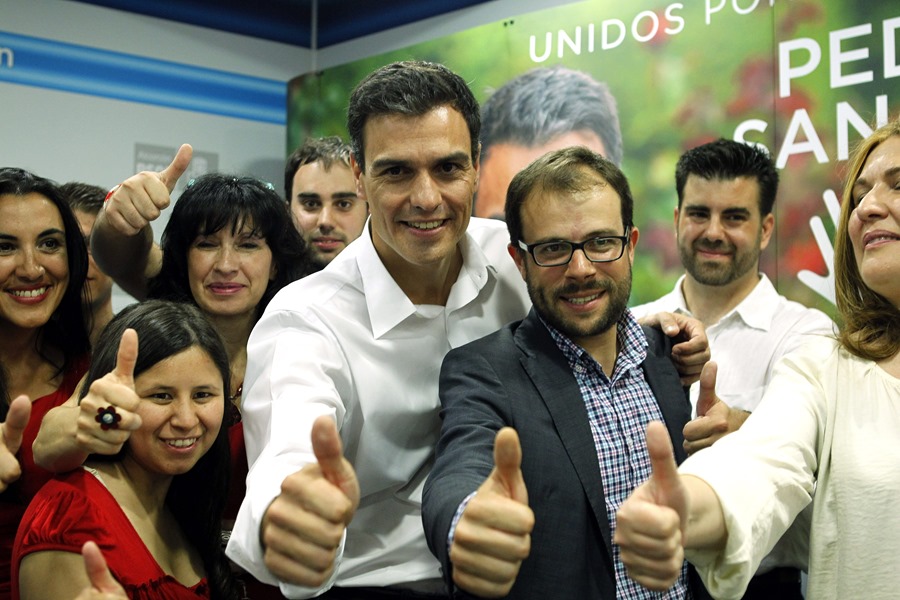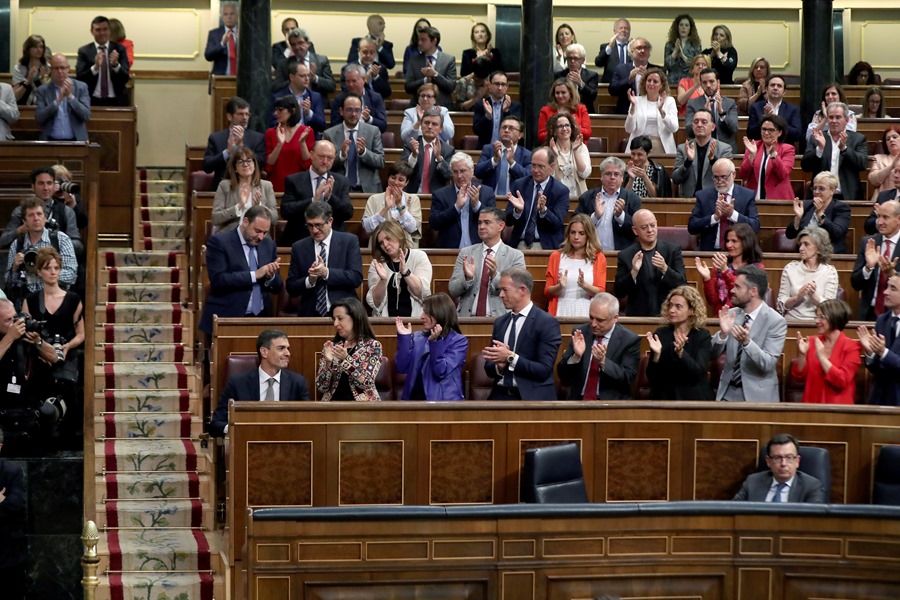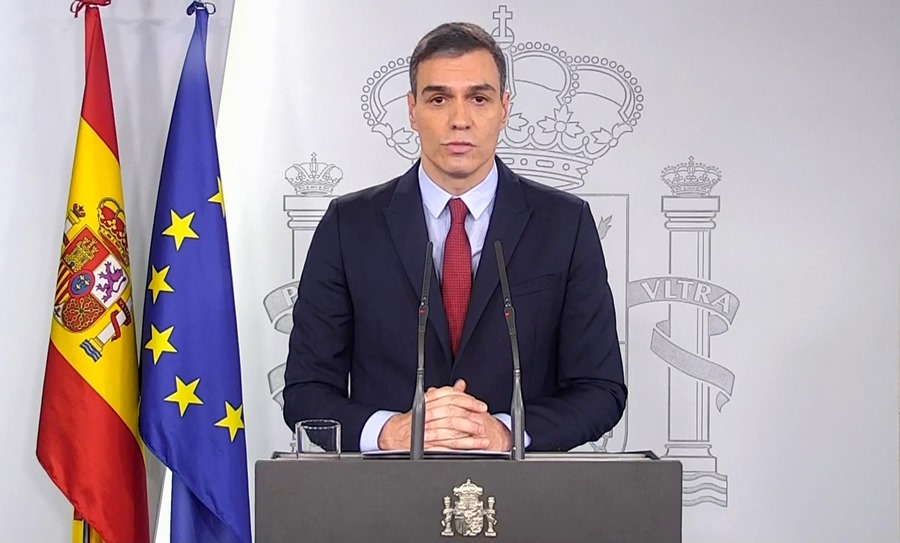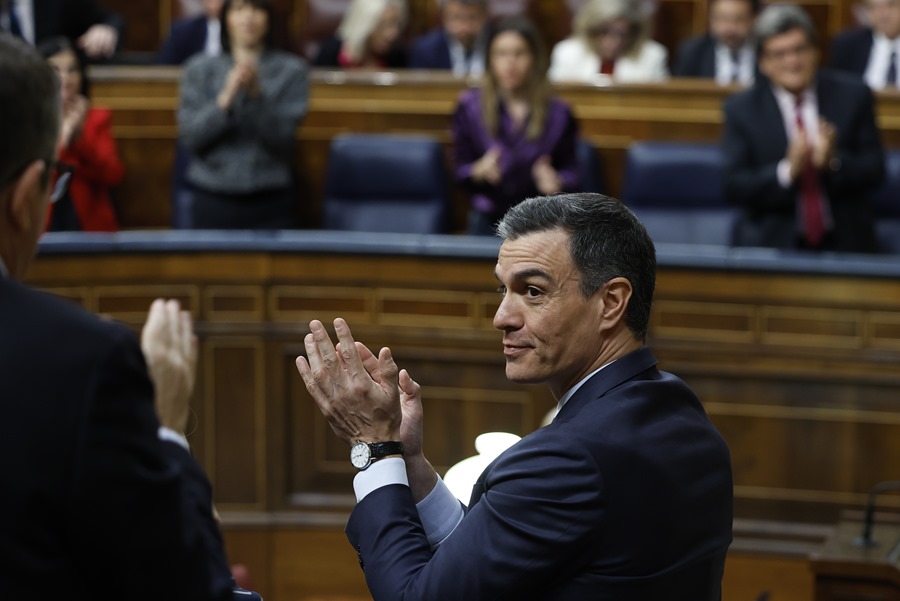Sun Careers |
Madrid (EFE) : win the next elections and put an end to the “bubble of sanchismo” that the right wing claims has created.
With the advancement of the general elections to July 23, Sánchez (Madrid, February 29, 1972) raised an ordeal to the PP and to himself, by leaving his own political future in the hands of the voters, taking direct responsibility for the poor results of the PSOE in the municipal and regional elections in May.
The announcement of the electoral advance took even members of his party by surprise, but it was consistent with the career of Sánchez, who over the years has demonstrated his skills as a political strategist, his capacity for reinvention and his spirit of resilience, which was captured in his biography ‘Manual de Resistencia’.
Sánchez started in politics in 2004
Sánchez, married with two daughters, began his political career in 2004 as a socialist councilor in the Madrid City Council and made the leap to the Congress of Deputies in 2009 by occupying the seat of Pedro Solbes.
Shortly after being elected Secretary General of the PSOE in 2014, the king entrusted him with the formation of the government after the general elections of December 2015 as Mariano Rajoy did not have the necessary support, but Sánchez failed in his attempt with two failed investitures, despite to the agreement signed with Ciudadanos.

Electoral repetition in 2016, turning point for Pedro Sánchez
The electoral repetition of June 2016 marked a turning point for Sánchez, who took one of the riskiest and most controversial positions of his political career with his refusal to investiture Rajoy as Prime Minister.
Sánchez then faced the majority of the socialist parliamentary group (in favor of abstention), resigned his seat and was expelled as leader of the PSOE, but in May 2017 he reemerged with the support of the militancy, who elected him again as general secretary of the party in a primary.

Events began to change in favor of Sánchez, who in June 2018 became the first president of the Government of Spain to be inaugurated after winning a motion of no confidence, presented in this case against Rajoy, although Congress rejected his first budgets. led to the calling of elections in April 2019.
Electoral repetition in 2018
Sánchez won but did not obtain sufficient support to be sworn in as president, for which reason he set an electoral repetition in November of that same year after which he formed together with United We Can the first coalition government in the history of Spain.
A government in which Sánchez has experienced numerous internal crises with his own partners, such as the strong disagreements that confronted them with the reform of the law that only yes is yes, but also challenges from abroad.
Shortly after being sworn in as president, Sánchez declared a state of alarm due to the coronavirus pandemic, and then had to face natural catastrophes such as the Filomena snowfall or the eruption of the La Palma volcano, as well as the economic and political consequences of the war in Ukraine.

Among the achievements of his Government, Sánchez usually highlights measures such as the approval of the labor reform (with a heart-stopping vote in Congress saved at the last minute thanks to the error of a PP deputy), the increase in the minimum interprofessional wage or the reform of pensions.
Decisions criticized
But there have also been decisions that have provoked criticism not only from the opposition but also from members of the PSOE, such as the reform of the crime of sedition, the approval of the democratic memory law or the change of position regarding Western Sahara, something that Sánchez himself has denied.
At the gates of new general elections, Sánchez is trying to dismantle the image of a cold, calculating, ambitious and unscrupulous person that, according to a complaint, the “political and media” right wing wants to attribute to him through the concept of ‘sanchismo’.
And in an attempt to attract the most moderate voters and disgruntled socialists, Sánchez strives to distance himself from pro-independence parties such as EH Bildu or ERC, by assuring that he has only reached “specific” parliamentary agreements with them, and justifies measures such as the I pardon the leaders of the procés as a way of appeasing coexistence in Catalonia.

Sánchez, who has passed two motions of censure filed by Vox against him, has taken over the reins of a PSOE where internal criticism is barely visible, with exceptions such as those of the barons Emiliano Garcia-Page (Castilla-La Mancha) and Javier Lambán (Aragón), although his leadership at the head of the party will now depend largely on the results of 23J.
All this without losing sight of its dimension in international politics, where Sánchez stands out, among other aspects, for his command of English and which he has crowned with milestones such as his presidency of the Socialist International, his visit to the President of the United States in the White House or its role as host at the NATO summit.






